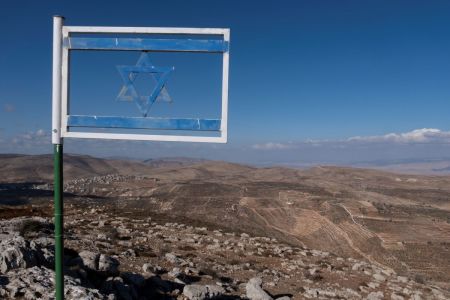Israeli settlements in Palestinian territories violate international law, top UN court rules

The International Court of Justice has declared Israel's "prolonged occupation" and settlement policies in Palestinian territories since 1967 are unlawful and must end swiftly. This non-binding advisory opinion may intensify the legal and diplomatic scrutiny on Israel amid its ongoing conflict with Hamas in Gaza.
The United Nations court ruled Israel's settlements in the West Bank, along with the "annexation" of East Jerusalem and continued control over certain aspects of the Gaza Strip, violate several international laws and norms, including The Hague Regulations and the Fourth Geneva Convention.
"The Court considers that the violations by Israel of the prohibition of the acquisition of territory by force and of the Palestinian people's right to self-determination have a direct impact on the legality of the continued presence of Israel, as an occupying Power, in the Occupied Palestinian Territory," the ICJ said.
It added, "The sustained abuse by Israel of its position as an occupying Power, through annexation and an assertion of permanent control over the Occupied Palestinian Territory and continued frustration of the right of the Palestinian people to self-determination, violates fundamental principles of international law and renders Israel's presence in the Occupied Palestinian Territory unlawful."
The findings urge Israel to cease further settlement activities, dismantle existing ones and pay reparations for damages caused by these violations.
The court said Israeli laws, like the 2018 Nation State Basic Law, and governmental policies promote permanent Israeli control over these territories, challenging the fundamental rights of the Palestinian people to self-determination.
Israel Prime Minister Benjamin Netanyahu, alongside other senior government officials and settlement leaders, vehemently rejected the court's decision. They argued that the Jewish people's historical connection to areas like East Jerusalem and the West Bank — referred to as Judea and Samaria in Israel — legitimizes their claim, despite international opposition.
Israel captured parts of the West Bank, East Jerusalem and the Gaza Strip, areas the Palestinians wanted for an independent state, in the 1967 Six-Day War.
"The Jewish people are not occupiers in their own land, including in our eternal capital Jerusalem nor in Judea and Samaria, our historical homeland," Netanyahu said in a statement. "No absurd opinion in The Hague can deny this historical truth or the legal right of Israelis to live in their own communities in our ancestral home."
Israel didn't take part in the oral hearings and submitted a written statement calling the court's questions "prejudicial" and "tendentious," according to Agence France-Presse.
The Palestinian leadership welcomed the ICJ's opinion, seeing it as a validation of their long-held views on Israeli policies. The office of Palestinian Authority President Mahmoud Abbas described the decision as "historic" and called for its immediate implementation.
Similarly, Hamas, the Islamic terror group that has controlled the Gaza Strip since 2007, saw the ruling as a step for the international community to act against Israeli "occupation."
The opinion, though not enforceable, carries weight in international diplomacy and has the potential to influence Israel's international standing as it continues its war against Hamas in Gaza following the terror group's Oct. 7 attack that killed 1,200 in southern Israel. The Hamas-run Gaza Health Ministry reports over 38,000 people have been killed in Gaza since the war began. That figure doesn't differentiate between combatants and civilians.





















